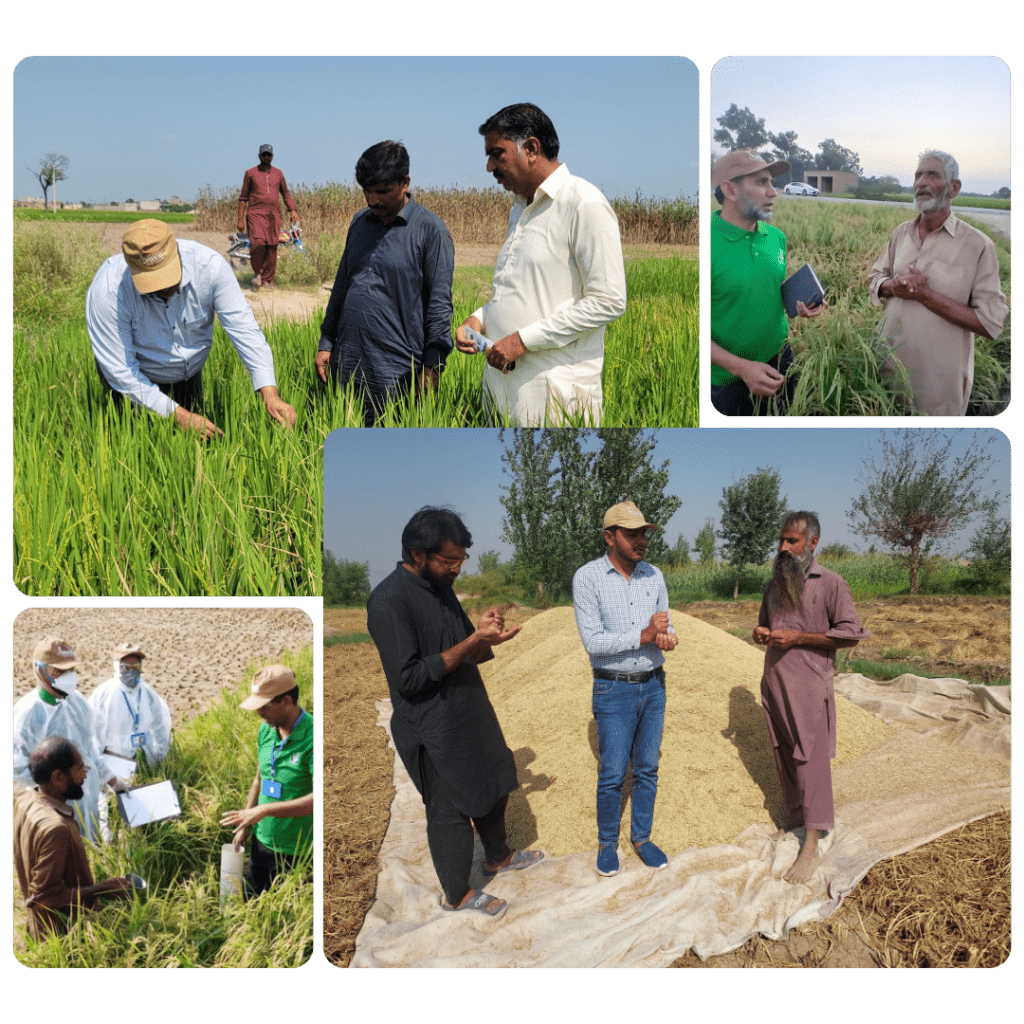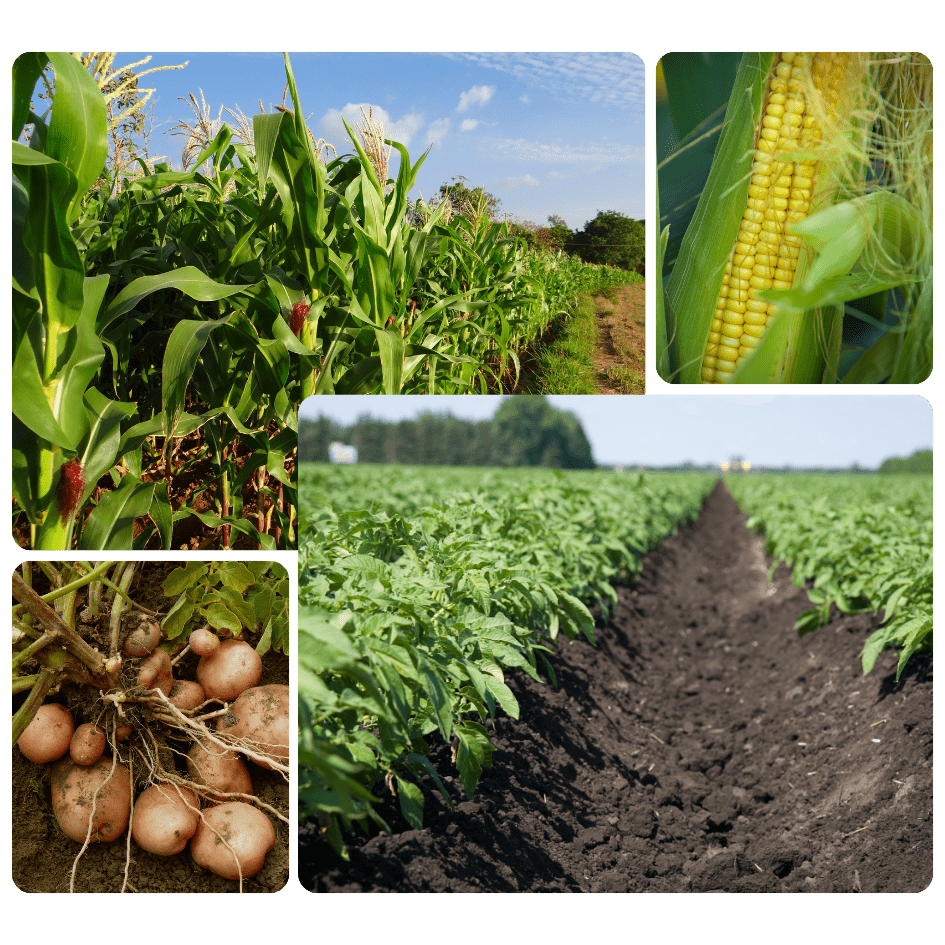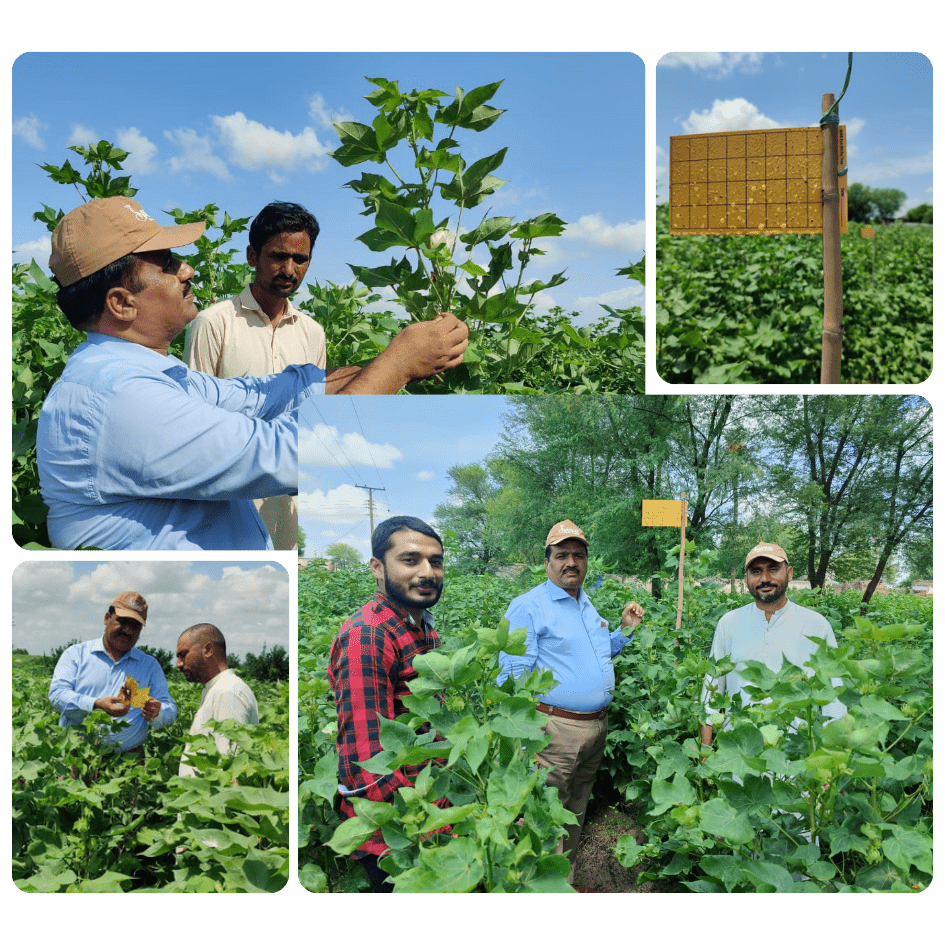Climate Smart Agriculture (CSA)
Climate change poses an urgent and escalating threat to global food systems, particularly in countries like Pakistan, where over 8 million smallholder farmers form the backbone of national agricultural production. Rising temperatures, erratic rainfall patterns, frequent floods, and prolonged droughts are already impacting crop yields, water availability, and soil health.
Building Climate Resilience in Pakistan’s Agriculture
Climate Smart Agriculture (CSA) offers a transformative solution by integrating sustainable farming practices, advanced technologies, and nature-based solutions. Its core goals are to:

Enhance agricultural productivity

Build resilience to climate related shocks

Reduce greenhouse gas emissions

Ensure food security and farmer livelihoods
CSA involves practices such as conservation agriculture, efficient water use, soil health restoration, integrated pest management, and the use of renewable energy, all supported by digital advisory tools and green finance solutions.

Climate Smart Village Initiative
(CSVI)

To tackle these threats, SAWiE, in strategic partnership with Bank Alfalah, has launched the Climate Smart Village Initiative a transformative approach empowering farmers with sustainable, resilient, and innovative agricultural solutions. As a joint initiative, it combines SAWiE’s expertise in climate-smart digital advisory and regenerative farming with Bank Alfalah’s leadership in green finance and agricultural lending. These villages serve as living labs of innovation, where local communities, researchers, and private sector actors co-create scalable models for climate-smart agriculture.
We’ve established three Climate Smart Villages (CSVs), each focused on a distinct cropping system and agro-ecological zone. These serve as innovation hubs for testing and demonstrating climate-resilient agricultural practices.
Our Climate Smart Villages (CSV)
Our Model Villages: Living Labs of Innovation
Faisalabad (Rice–Wheat Zone)
Mixed Farming Innovation Hub
- Crop diversification and rotational planning
- Introduction of raised-bed planting for rice and wheat
- Soil moisture monitoring and efficient irrigation scheduling
- On-farm composting and bio-fertilizers
- Livestock integration with crop production for circular farming


Vehari (Maize–Potato Zone)
Precision Agriculture and Soil Health Focus
- Drip irrigation and mulching to conserve water
- Balanced and novel fertilizer applications
- Integrated nutrient management based on soil health diagnostics
- Smart pest management using pheromone traps and pollinator support
- Crop residue management to reduce emissions and enrich soil carbon

Layyah (Cotton–Wheat Zone)
Climate Resilience in Arid Environments
-
-
- Zero tillage practices to reduce soil erosion and fuel use
- Introduction of high-efficiency irrigation systems and moisture sensors
- Integrated Pest Management (IPM) using eco-friendly approaches
- Agroforestry for carbon sequestration and microclimate regulation
- Biochar and composting to restore degraded soils
- Demonstrations on biodigesters for clean energy and organic fertilizer
-
Key CSA Interventions Across Villages
Regenerative Agriculture
Crop diversification and integration with livestock
Use of compost, green manure, and cover crops
Raised-bed and conservation tillage practices
Water Smart Technologies
Drip and sprinkler irrigation systems
Mulching for moisture retention
Soil moisture sensors for precision irrigation
Pest & Disease Management
IPM using biological control, pheromone and sticky traps
Promoting beneficial insect habitats and pollinator crops
Reducing synthetic pesticide dependence
Renewable Energy & Clean Tech
Solar-powered water pumps
Small-scale biodigesters for energy and nutrient recovery
Digital Advisory Support
Real-time weather, pest alerts, and crop advisory through SAWiE’s digital platform
Farm-level decision-making based on remote sensing and AI
Carbon Farming & Scope 3 Emissions
Measuring and reducing carbon footprints through low-emission practices
Helping farmers access Voluntary Carbon Markets (VCMs)
Building capacity to generate carbon credits from climate-positive farming
Our Vision
To build a resilient, equitable, and sustainable agriculture system in Pakistan by transforming villages into climate innovation hubs that not only adapt to climate change but thrive under it. The CSV model demonstrates how science, technology, and local wisdom can converge to secure the future of farming.